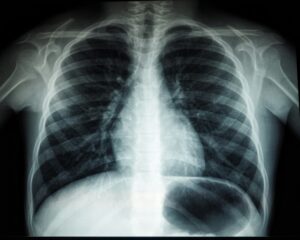97% of global cities and all countries failed to meet the latest World Health Organization (WHO) PM2.5 air quality guidelines in 2021, according to IQAir’s World Air Quality Report.
The report analysed PM2.5 from air monitoring stations in 6,475 cities and 118 countries, regions and territories, finding that only 3% of cities met the WHO’s air quality guidelines for PM2.5.
IQAir’s 2021 World Air Quality Report is the first major global air quality report based on updated WHO air quality guidelines for PM2.5.
The new guidelines were released in September 2021 and cut existing annual PM2.5 guideline values from 10 µg/m3 to 5 µg/m3.
‘It is a shocking fact that no major city or country is providing safe and healthy air to their citizens according to the latest World Health Organization air quality guidelines,’ said Frank Hammes, CEO of IQAir. ‘This report underscores just how much work remains to be done to ensure that everyone has safe, clean and healthy air to breathe. The time for action is now.’
The analysis found that only 222 out of 6,475 global cities covered in the report met updated WHO PM2.5 guidelines, with 93 cities having annual PM2.5 concentrations exceeding 10 times the WHO standards.
The top five most polluted countries in 2021 were Bangladesh, Chad, Pakistan, Tajikistan and India.
New Delhi was ranked as the world’s most polluted capital city for the second consecutive year, followed by Dhaka, N’Djamena, Dushanbe, and Muscat.
Central and South Asia also had some of the world’s worst air quality in 2021 and was home to 47 of the world’s 50 most polluted cities.
‘We understand better than ever before how air pollution damages our health and economies. This report is a wakeup call, revealing how people worldwide are denied access to clean air. PM air pollution is produced through burning fuels including coal, oil and fossil gas, unsustainable development, and agricultural activities. Addressing the air pollution crisis requires the development of renewable energy resources and clean-powered, accessible public transport. Moreover, solutions to air pollution are also solutions to the climate crisis. Breathing clean air should be a basic human right, not a privilege,’ commented Greenpeace India Campaign Manager Avinash Chanchal.
The 2021 World Air Quality Report is based on PM2.5 air pollution data from ground-based air quality monitoring stations.
Of the air quality monitoring stations included in this report, 46 percent were operated by governmental agencies, while the remainder represent monitoring stations managed by citizen scientists, non-profit organizations and companies.
The full report can be viewed here.
Photo by Mike Dudin

















Okay, which clearly indicates that the WHO is nothing but a lobby organization, advocating for unreasonable tight regulations. Fair enough, WHO is like a locomotive pulling the states in the right direction, but please do not raise the standards higher than what can be achieved. I’m glad our regulation is governed by the EU.